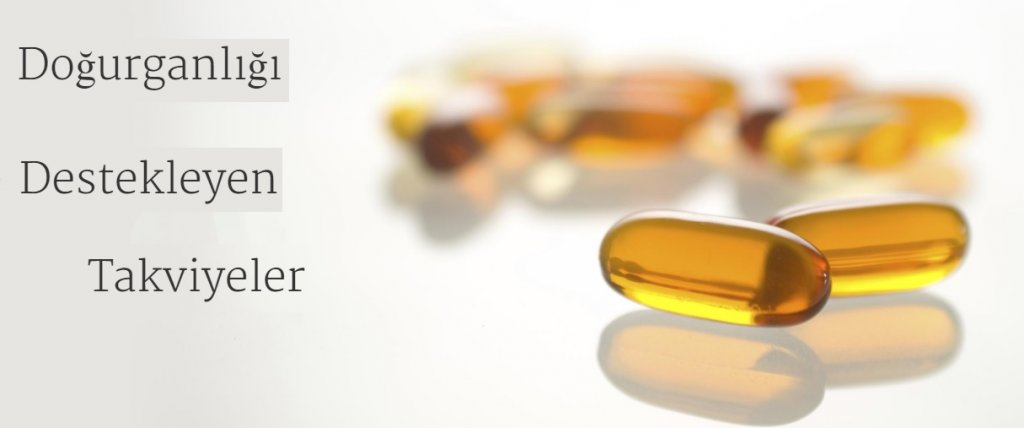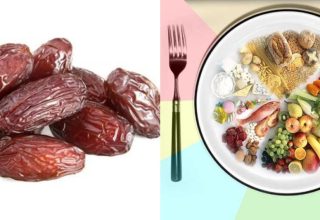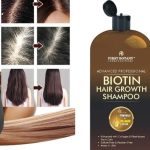Fertility Support Supplements

Nutrition plays a valuable role in fertility. Eating a healthy and stable diet and taking appropriate fertility-supporting supplements can increase fertility for both men and women.
It’s no secret that a regular prenatal vitamin regimen can help both mother and baby get the nutrients they need for a healthy pregnancy. But don’t wait until you’re pregnant to start support; The right combination of fertility vitamins for women and men can help improve your chances of conceiving. From improving egg quality to increasing sperm motility, research shows that taking fertility vitamins can increase your chances of conceiving in less time.
You can take a look at our previous topic.
In general, the most valuable vitamin to take while trying to conceive and throughout pregnancy is a standard prenatal vitamin with its most valuable component. Daily folic acid intakeshould be at least 400-1000 mcg.
Often the most effective way to support fertility is to truly analyze which nutrients are the most deficient (and therefore a priority) for you to address and optimize.
Female Fertility Supplements
Recommended for everyone:
- A healthy diet with fruits (especially strawberries) and vegetables, less red meat and no trans fats. Use olive oil for cooking and salads. Avocados and nuts are also good sources of monounsaturated fat.
- Omega-3s (fish oil) 500-1,000 mg daily
For ladies over 37, add to the above:
- Increase antioxidants—500-1,000 mg of vitamin C, 200 IU of vitamin E (*** don’t take vitamin E if taking baby aspirin), decaffeinated green tea (1 cup per day); Consider adding 40-60mg of pycnogenol twice a day (this can replace or add to the other antioxidants mentioned earlier).
- Take 400 micrograms of folic acid; at least this measure is often found in all prenatal vitamins and multivitamins.
- If your protein intake is low, consider adding 1-2 grams of L-arginine.
- A small amount of vitamin C added to green tea aids in the absorption of antioxidants.
The health and quality of a woman’s eggs (and the quality of the resulting embryos) are greatly influenced by the level of blood flow surrounding the ovaries and the extent of antioxidants available to guard against the damaging effects of oxidation. Based on the current field literature and our individual practice experience, we have prepared a support list for women starting their journey.
Omega 3 Fatty Acids: These essential oils help maximize blood flow to the pelvic organs by increasing nitric oxide production in your blood vessels. Increased consumption of omega 3s has been associated with improved embryo implantation, reduced motility, and positive effects on fetal brain development.
We recommend: 400 to 1000 mcg per day
Folic acid: This B vitamin prevents high blood pressure as well as improving blood flow. Folic acid has also been shown to prevent some fetal abnormalities, such as neural tube defects.
Recommended: 400 to 1000 mcg per day
C vitamin: This antioxidant specifically works to smooth nitric oxide levels, which translates into improved blood flow. Vitamin C is known to worsen heartburn, so avoid taking it before bed.
We recommend: 500mg per day
L-arginine: L-arginine is needed to supplement if your protein intake is low; This is a possible concern for those with a vegetarian or vegan lifestyle. We do not recommend that women consume L-citrulline, an alternative form of L-arginine, as it has not been adequately studied in the female population.
We recommend: 1000 to 2000 mg per day
Pycnogenol: It is recommended to increase your antioxidant intake through natural sources, mostly pomegranates, blueberries and dark leafy vegetables. However, if your natural consumption is low, you may want to consider taking Pycnogenol, especially if you are 37 years or older. Pycnogenol contains proanthocyanidins similar to the antioxidants found in blueberries, green tea, and cocoa. NOTE:This supplement should be discontinued when a positive pregnancy test is received, as its effects during pregnancy have not been studied.
We recommend:50 to 120 mg per day
Green tea: Green tea has long been known as an outstanding source of natural antioxidants. The absorption of these antioxidants can obviously be increased by adding 50mg of vitamin C to each glass. Despite being an excellent resource, this offer comes with a slight caveat. Because of its caffeine contentexcessive consumption of decaffeinated green tea infertilityand adversely affect their treatment.
Therefore, we recommend: not more than 1 glass per day
CoEnzyme Q-10: This coenzyme is critical for cellular power generation. Studies have shown that this mitochondrial nutrient can reverse aging effects on female eggs. ladies, especially Those aged 37 and overshould consider taking it to improve egg quality. NOTE:This supplement should be discontinued when a positive pregnancy test is taken.
We recommend:600mg per day
Male fertility supplements
Recommended for everyone:
- A healthy diet with fruits (especially strawberries) and vegetables, less red meat and no trans fats.
- Omega-3s (fish oil) 500-1,000 mg daily
For men over 40 and/or with unusual semen (low count, motility and/or morphology), add to the above:
- Increase antioxidants—500-1,000 mg of vitamin C, 200 IU of vitamin E, green tea (1-3 cups per day); Consider adding 40-60mg of pycnogenol twice a day (this can replace or add to the other antioxidants mentioned earlier).
- Consider increasing omega-3s to 1,000 to 2,000 mg. In a study of 1840 mg for 8 months, all semen parameters improved, particularly solid morphology.
- Consider adding 15-30 mg of folic acid, 400 micrograms and zinc per day, as some research shows benefits for sperm. These are found in many multivitamins.
- Consider adding 2 grams of L-citrulline (which can increase blood flow to the testicles). Dark chocolate is another powerful antioxidant—use a low-sugar brand.
- A small amount of vitamin C added to green tea aids in the absorption of antioxidants.
- Consider adding 200 mg of Co-enzyme Q-10 twice a day. In one study, it stimulated sperm motility.
The vitality and general health of the sperm are highly susceptible to the damaging effects of oxidation artifacts. Therefore, increasing antioxidant intake before and during fertility treatment is key. The testicles produce sperm over a period of 2 to 3 months, so starting these supplements early is often recommended. Increasing nitric oxide is also valuable as it improves blood flow, which has been shown to improve sperm quality. Based on a research review, we’ve compiled a list of supplements for men looking to increase their fertility.
Omega 3 fatty acids: These healthy fats increase nitric oxide production, which ultimately maximizes blood flow to the testicles. In several recent studies, omega-3s have been associated with optimized sperm quality. A higher dose taken over several months may have a greater beneficial effect on sperm counts, motility and. NOTE: Men also shouldn’t increase omega-3s without a massive increase in their antioxidant intake. While essential for sperm membrane function, these polyunsaturated fats are particularly susceptible to the effects of oxidative compounds.
We recommend:
- 500 to 1200 mg daily
- 1,000 to 2,000 mg per day for a higher dose (consult your doctor first about necessity)
Folic acid: Folic acid is a specific co-factor in nitric oxide production in the body, which works to increase blood flow, as discussed earlier. With this, colon cancer from excessive folic acid intake There have been some concerns recently that it may also increase the risk of possible that still provides positive benefits the smallest doseis to take.
Therefore, we recommend: 200 to 400 mcg per day
C vitamin: This antioxidant also stimulates nitric oxide production. Vitamin C can worsen heartburn, so avoid taking it at bedtime.
We recommend: 500mg per day
L-citrulline: L-citrulline and L-arginine are raw materials used by the body to produce nitric oxide. While L-arginine must be extensively broken down before it can be bioavailable, L-citrulline is a direct intracellular source of L-arginine and increases levels much more efficiently than consumption of L-arginine alone. In a well-controlled study, increased consumption of L-arginine with pycnogenol showed a valuable increase in all semen parameters.
We recommend: 2 g L-citrulline daily
Pycnogenol: Increasing your antioxidant intake through natural sources such as strawberries, chocolate, green tea and dark leafy vegetables is highly recommended. However, the pycnogenol spike can help slow the breakdown of nitric oxide even further, and in some cases has even been shown to stimulate its production. Pycnogenol contains proanthocyanidins, comparable to the key antioxidants in strawberries and dark chocolate.
We recommend: 60-120 mg of pycnogenol daily
Green tea: Green tea is an excellent source of antioxidants. While decaffeinated green tea is often recommended for minimizing caffeine levels in the body, men are typically not as exposed to the negative effects of caffeine on fertility as women. In addition, the decaffeination process reduces the level of antioxidants present. This can be avoided by adding 50mg of vitamin C to each glass before drinking.
We recommend: 1 to 3 cups of green tea per day
CoEnzyme Q-10: This mitrochondiral nutrient is essential for power generation within the cell. Studies have shown that increased CoQ-10 intake significantly increases sperm percentage with forward motility and average sperm speed. Although this study took 6 months, an effect could occur much sooner, as CoQ-10 specifically acts on the power-generating biochemical pathway.
We recommend: 200mg twice a day
Chocolate: Cocoa has strong effects on nitric oxide production. However, many of the available chocolate sources are typically high in sugar, which can actually reduce nitric oxide, so low sugar It is best to look for varieties. This is our only offer that can cause you to gain weight, so be careful not to consume too much.
We recommend: 30 grams of low-sugar, dark chocolate daily
- On-Site Comments
















Comment